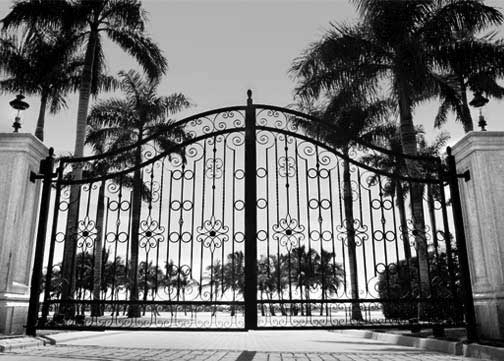In Watkins’ article “Digital Gates: How Race and Class
Distinctions Are Shaping the Digital World” the author displays evidence that
illuminates how class and cultural divisions materialize in the realm of social
media. Truth be told, while Watkins does have a plenty of work to back up his
assertions, I was sold on the concept before the data was ever shown. While my
personal experience may be less scientifically reputable it nonetheless offers
a subjective window into how the scenario developed in my school and social
circle.
Though I was still in high school when Facebook opened
itself up to all users with an email address, the networking site still held a
more prestigious allure to it than Myspace, more specifically because of who
was using it: the upperclassmen. Where on Myspace I stayed relatively contained
within the friend circles I had created in the physical world, Facebook was
more of a dossier of connections. The inherent association of college and achievement
turned it into a secret club of sorts. Few from my grade had one yet, but all
of the seniors did, and adding them gave one an in for real life social
interaction.
Of course this did not last long. Once everyone had a
Facebook it lost its allure considerably, to the point where there is even a backlash of people removing themselves from it. While users leave for various reasons, I think modern flights to and from these communities are more
indicative of two human characteristics interacting: the desire for community in combat
with the fear of the other.
 At Facebook’s inception it was sold on its exclusivity, a
community of people with likeminded goals and attitudes that offered a digital
“gate” that kept out undesirable persons. In this way the people using Facebook
fall into the danger of self reinforced ideals of normality. When a large
percentage of a population is excluded, one can very easily subscribe to what they consider “true” ideals without ever seeing the converse opinion. This holds
true even in anonymous communities, where even though a centralized user image
is lacking certain groups are still ostracized and demeaned for straying from a
broad and widely accepted social paradigm.
At Facebook’s inception it was sold on its exclusivity, a
community of people with likeminded goals and attitudes that offered a digital
“gate” that kept out undesirable persons. In this way the people using Facebook
fall into the danger of self reinforced ideals of normality. When a large
percentage of a population is excluded, one can very easily subscribe to what they consider “true” ideals without ever seeing the converse opinion. This holds
true even in anonymous communities, where even though a centralized user image
is lacking certain groups are still ostracized and demeaned for straying from a
broad and widely accepted social paradigm.
However to say this is Facebook’s fault is to be
technologically deterministic. It might be more accurate to say that if a user
has this tendency to defend their fragile perceptions by easily blocking out
the noise of others, they will more than likely do it. What then does that say
about the future of thought and argument in the digital age? One can not
always avoid the confrontation of ideas in the physical world. Now, you can
silence the speaker at even the hint of an upsetting opinion.
But what do you think? Are exclusive digital communities
ultimately reinforcing long held beliefs at the expense of creating
understanding among disparate parties? Is the flight to and from sites just
another means of individualizing one’s self?

No comments:
Post a Comment